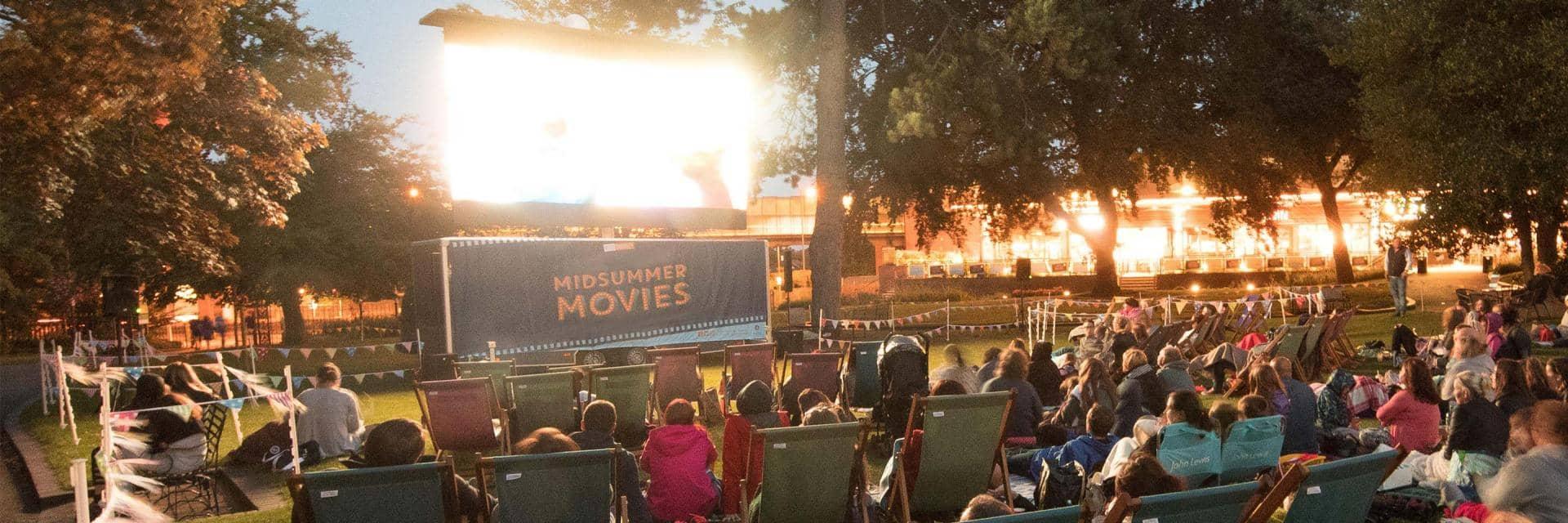
Impact
Going out: how has COVID-19 changed the way we socialise?
17 May 2021
The UK is looking forward to a summer of reconnection as cinemas, hotels and theatres reopen, while bars and restaurants are now allowed to serve customers inside. Through lockdown and beyond, Barclays has been supporting businesses in the hard-hit hospitality and leisure sector as they’ve pivoted their approach to the ‘new normal’. But what lessons have they learned over lockdown – and what changes will people see when they visit reopened venues?
1. The great staycation
Continued restrictions on overseas travel are likely to usher in a bumper summer season of staycations. Just under half of more than 2,000 people polled by Opinium for Barclays said they’d be spending at least one holiday in the UK this year – with the anticipated spend reaching £31bn.
Barclays has supported thousands of hospitality and tourism businesses throughout the pandemic, through “grants, helping them with marketing their services even when the shutters have been down, and providing millions of pounds worth of funds through the government lending schemes”, says Hannah Bernard, Head of Business Banking at Barclays.

Travelling restrictions are likely to increase the number of UK 'staycations' this summer.
Last year was challenging, but 2021 is shaping up to be much better. Bookings are up and the support we received last year has enabled us to adjust our operations and facilities.
Owner of The Olde House farm cottages
That support has allowed business owners to get their premises ready for ‘the great staycation’. Shaun Hawkey, owner of The Olde House, a site of 30 farm cottages in Wadebridge, Cornwall, said: “Last year was challenging, but 2021 is shaping up to be much better. Bookings are up and the support we received last year has enabled us to adjust our operations and facilities.”
His view is echoed by Tony Story, CEO of Kingsmills Hotels, who says his sites used the time to tackle environmental work – installing solar panels and vehicle-charging points, as well as expanding their outdoor areas. “We used the time wisely,” he says.
Caravan parks and campsites are feeling similarly upbeat. Miranda Jacobs, Director of Waterside Holiday Group, says her parks have invested in outdoor activities, including kids’ clubs, a beachside bar and a giant outdoor screen.
2. The big screen is back – with a difference
Cinemas had to cope with a double threat over lockdown: their premises were unavoidably shut, while their consumers also became increasingly used to watching their product – newly-released films – on mobile phones, tablets, laptops and televisions at home.
But with viewers anticipating long-delayed blockbusters like the latest James Bond film, Justin Ribbons, CEO of both multiplex chain Empire Cinemas and boutique brand Tivoli, says he is “confident that our customers will want to see” the backlog of high-profile releases on the big screen.
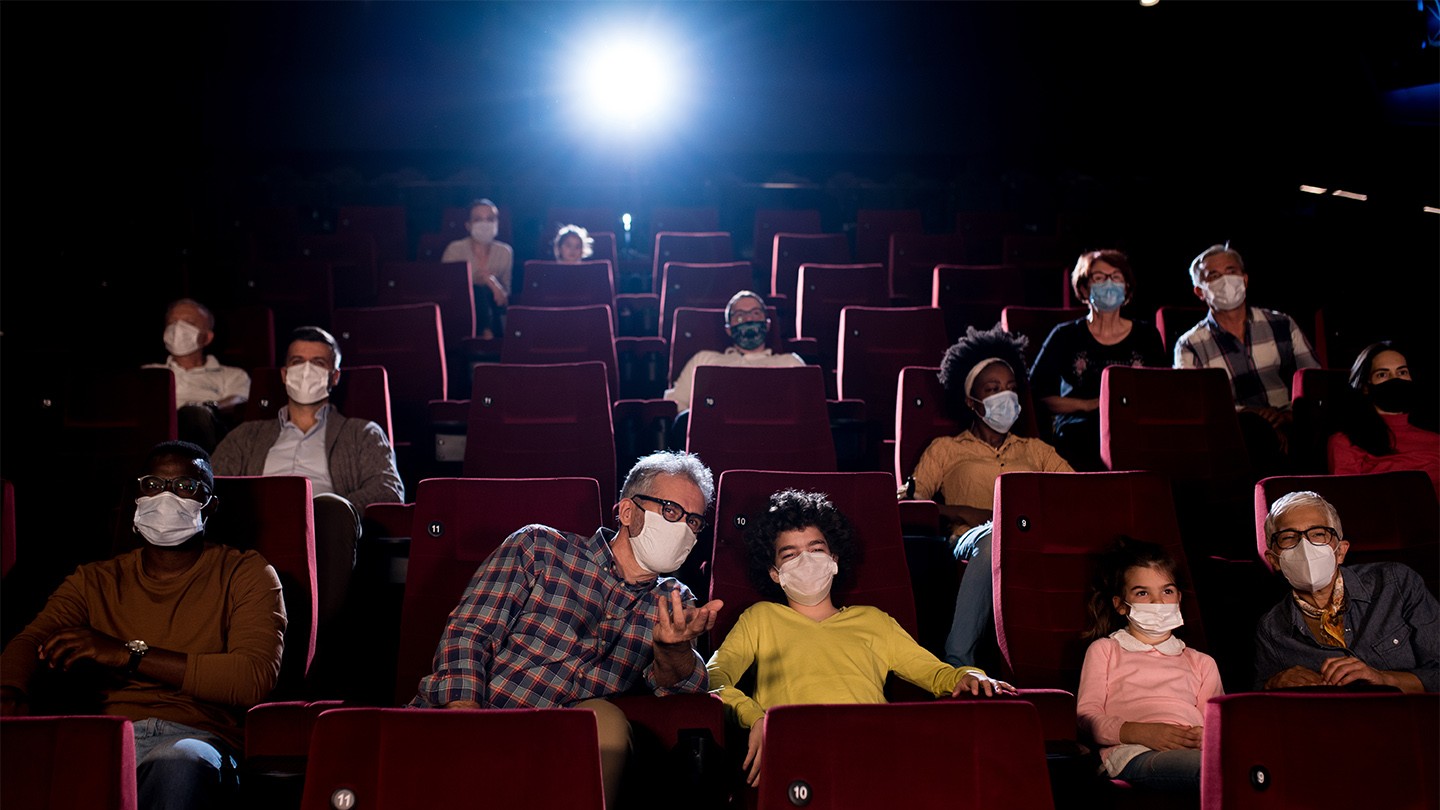
Audiences returning to cinemas may see changes such as pre-order technology and automatic entry systems.
There are a number of things we have had to do during this period that I think will help us be a more efficient business going forward and improve the customer experience.
CEO, Empire Cinemas
Those returning to the cinema will see changes though, partly because of ongoing precautions and partly thanks to positive lessons learned during lockdown. “There are a number of things we have had to do during this period that I think will help us be a more efficient business going forward and improve the customer experience,” says Ribbons.
He says making use of data analytics to “understand the desires of our audience” will benefit the sector. Pre-order technology for food and drink, the analysis of customer flow to help safety and social distancing, and automatic entry systems are all lockdown-inspired innovations that “can benefit both our customers and us as a business – as we look to bounce back fast.”
3. Safety, cleanliness and customer trust
In all areas of hospitality and leisure, customers will expect increased levels of safety and cleanliness in order to trust that venues are safe to return to. Ribbons says his cinemas have enhanced their cleaning regimes, with hand sanitiser available throughout buildings and clear one-way systems. Algorithms have been built into booking systems to allow for social distancing, while staff will work behind screens in food-serving areas.
Other businesses are making similar changes. Laurence Keen, CFO of Hollywood Bowl, says his alleys will continue to offer lane seating dividers between the lanes and bespoke bowling balls. “We’ve found that customers actually really like that,” he says.
4. Keeping gyms fit for purpose
During the UK lockdowns, as living rooms became yoga studios and floorboards creaked under the weight of Joe Wicks workouts, the UK’s gyms, swimming pools and leisure centres were losing an estimated £90m every week, many relying on government and other support to survive.
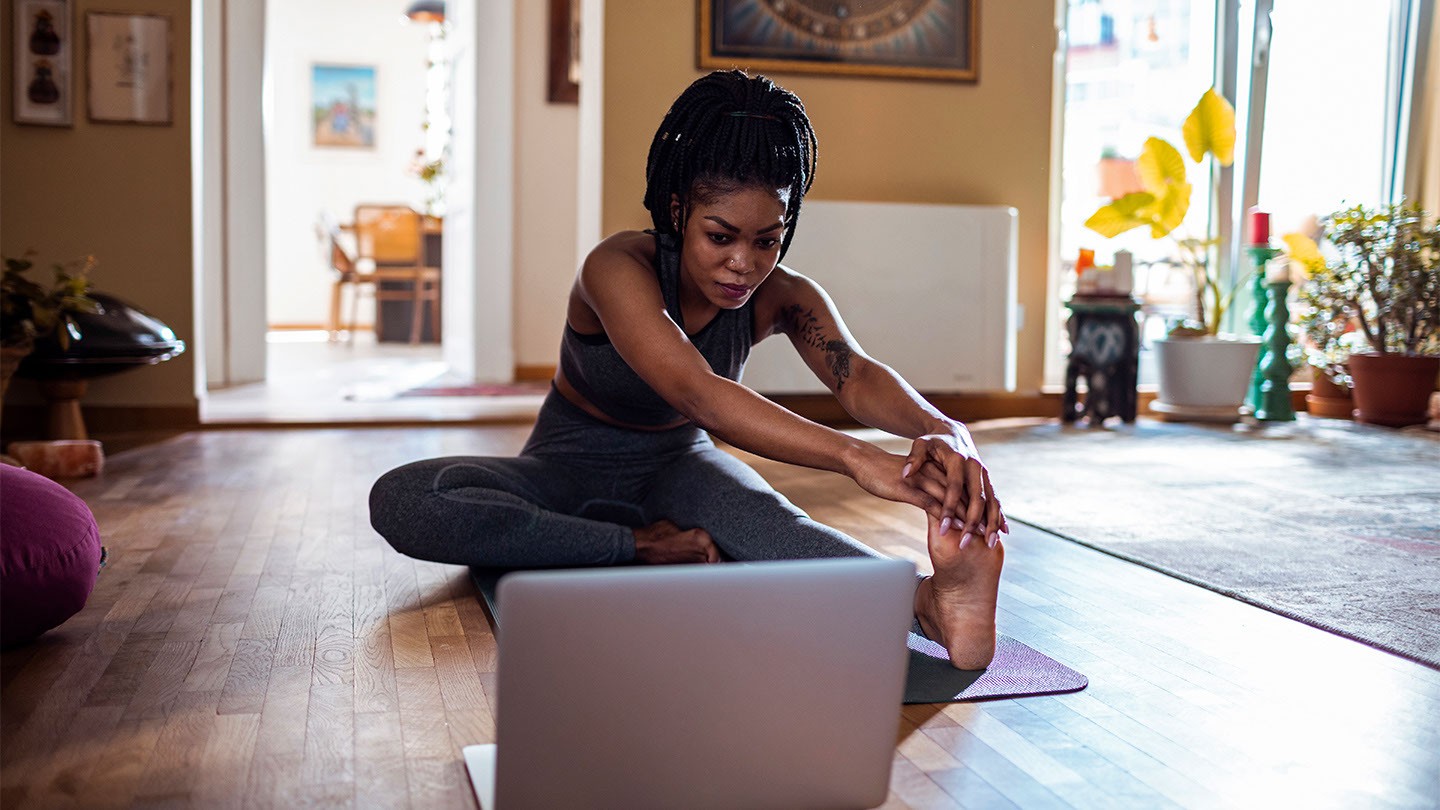
Some gym venues are exploring how to engage customers who are working out at home.
More and more consumers now want to experience their fitness both digitally and in person.
Managing Director, Virgin Active
But opening up, combined with the move of so many activities online, offers gyms an opportunity to serve both the physical and remote market. “More and more consumers now want to experience their fitness both digitally and in person,” says Ashley Aylmer, UK Managing Director at Virgin Active. The company has developed new membership plans for online and club passes, or combinations of the two.
Sophie Lawler, CEO of Total Fitness, says: “Digital served to retain engagement and ensure we stayed relevant to our members” and “will continue to be a significant part of our offer as we welcome members back to our clubs.”
5. Driving digital forward
The pandemic has seen gyms and sports clubs across the country digitise much of their business infrastructure. “A closed business is a perfect environment in which to do the ‘heavy lifting’ when it comes to overhauling an IT infrastructure”, says Lawler of Total Fitness, “so that’s what we did – by the summer we’ll have completed an entire build of a robust, scalable IT platform about 12 months ahead of plan.” Virgin Active has had a similar focus on improving the digital side of the business.
Such projects have been accelerated throughout the sector – and temporary COVID-19-influenced innovations have often been popular enough to be adopted long-term. Edward Walsh, Group Finance Director at the hotel group Coaching Inn, describes his company’s investment in room-booking systems and a cashless ‘order and pay’ app: “We thought that might be temporary, as we like the full-service model, but the take-up has been really strong.”
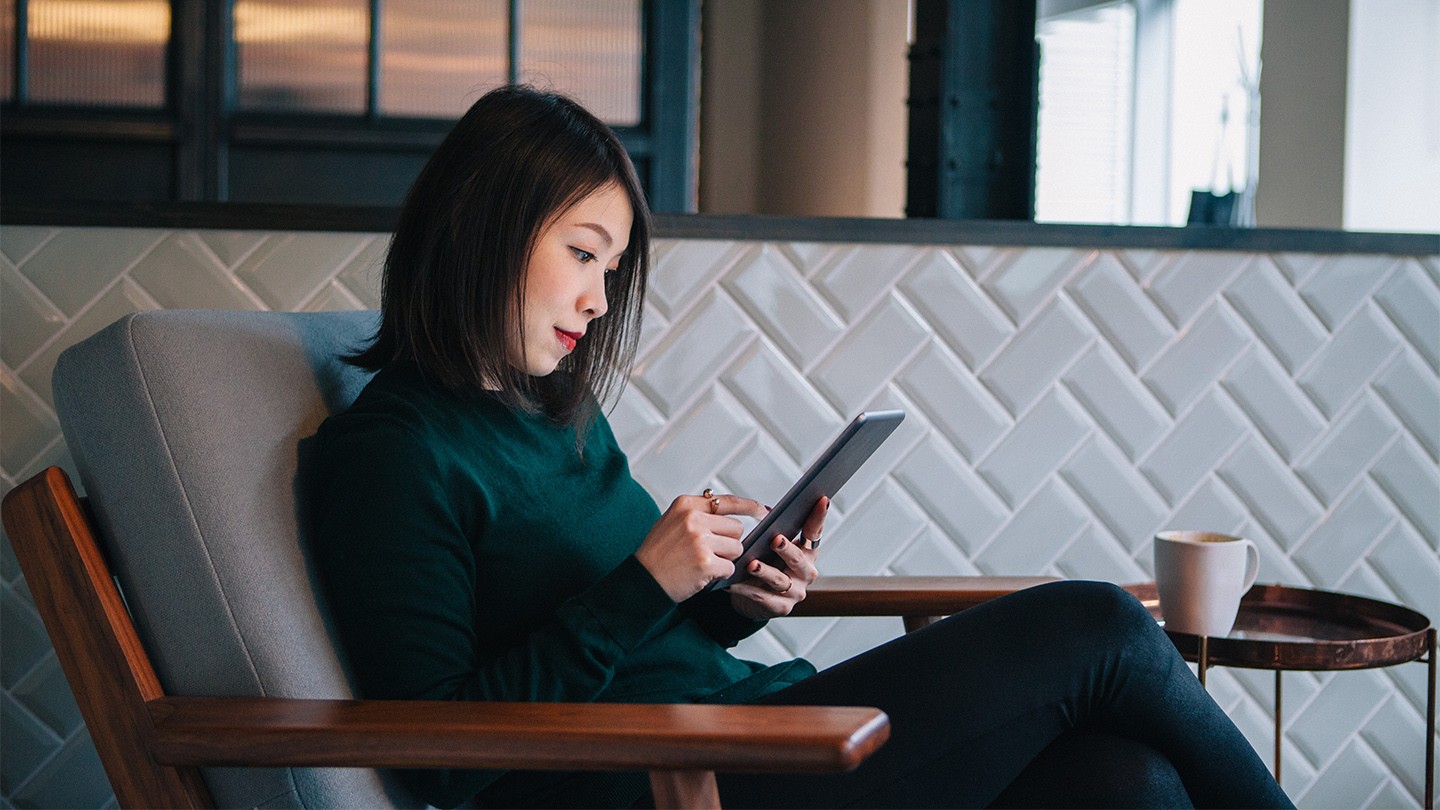
Many businesses in the sector have used time during lockdown to digitise their business infrastructure.
In sports, Mark Darbon, Chief Executive of Northampton Saints rugby club, says that without match-day income the business had to pivot completely. The club hosted drive-in theatre and music events, but “perhaps the most beneficial pivot has been digitising some of our revenue streams – to ensure they can continue to deliver during lockdown”. This redeployment of marketing and other resources means that, in the future, they can “spend to effectively support broader areas of our business”.
6. Pivoting business operations
Just as Northampton Saints diversified into drive-in concerts, many other businesses were forced to find new ways of operating during lockdown.
Nowhere was the ‘pivot’ clearer than in the food and drink sector. David Ramsey, Director of pub investment group Red Lion Holdings, says “we saw huge pivots across many of our sites. We developed a takeaway offering, a pick-up offering, a grocery delivery business – and, at one of our sites, we opened a yurt coffee shop, serving high-quality coffee in a brilliant setting. Many of those innovations will stay – not least the coffee shop, which is generating £5,000-6,000 a week in revenue.”
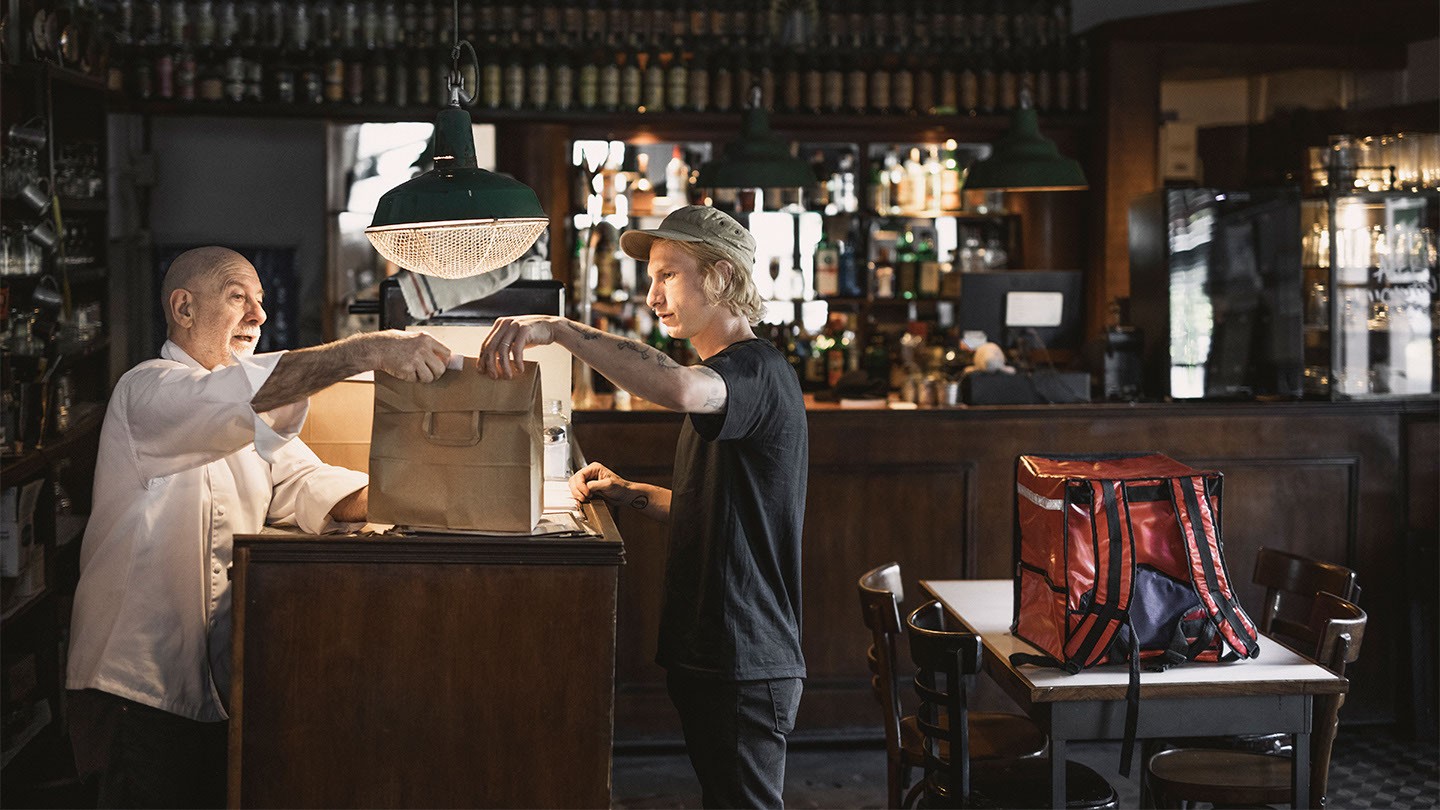
Takeaway has become an even more crucial part of business for restaurants during lockdown.
For Andy Laurillard, Co-Founder and CEO of Thai restaurant chain Giggling Squid, the pivot was to takeaway food. Adapting fast thanks to a partnership with Deliveroo, he says takeaways, previously responsible for 11% of the group’s income “was up to 55% of normal revenue levels during the lockdown, with elevated margins.”
He sees takeaway as a core part of his business, predicting that the number of people continuing to work from home will mean the continued popularity of the food-at-home model.
7. Planning ahead post-pandemic
“Far from implementing changes just to survive,” says Mike Saul, Head of Hospitality and Leisure at Barclays Corporate Banking, “businesses have also evolved in ways that will benefit them as we move past the pandemic – and as they look to seize the opportunities of brighter times ahead.”

Mike Saul, Head of Hospitality and Leisure at Barclays Corporate Banking, says the sector is likely to be more digital post-COVID-19.
Far from implementing changes just to survive, businesses have also evolved in ways that will benefit them as we move past the pandemic – and as they look to seize the opportunities of brighter times ahead.
Head of Hospitality and Leisure at Barclays Corporate
He adds: “Many have embarked upon or sped up digital transformation initiatives. Whether digital booking systems, financial forecasting capabilities, automation of the customer experience or order-and-collect apps, the message we have gained from the industry leaders we spoke to is that the hospitality and leisure sector will be a more digital one post-COVID-19 than it was prior to the pandemic.”
Having rethought how they operate, businesses need to take this innovative thinking forward, being open to change but also – importantly – preparing contingency plans for further disruption.